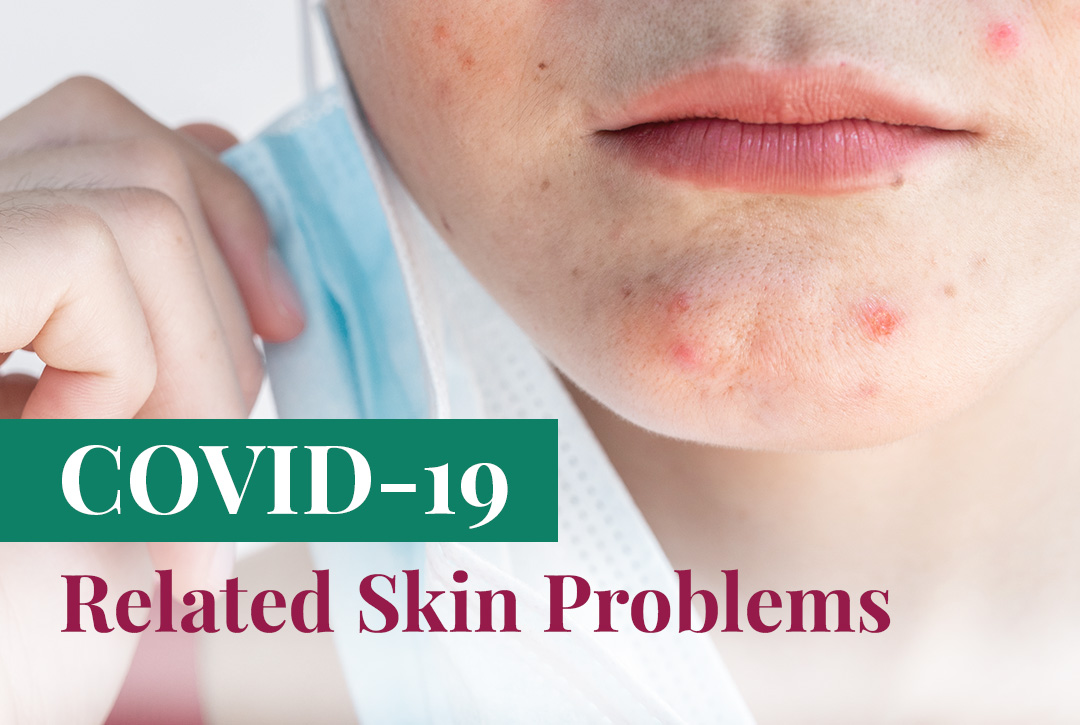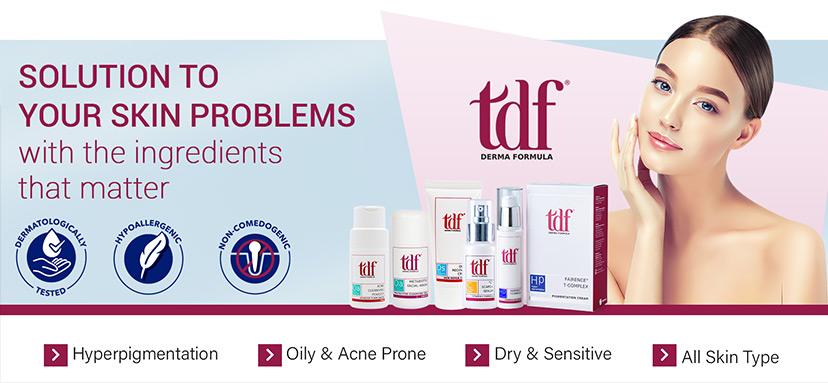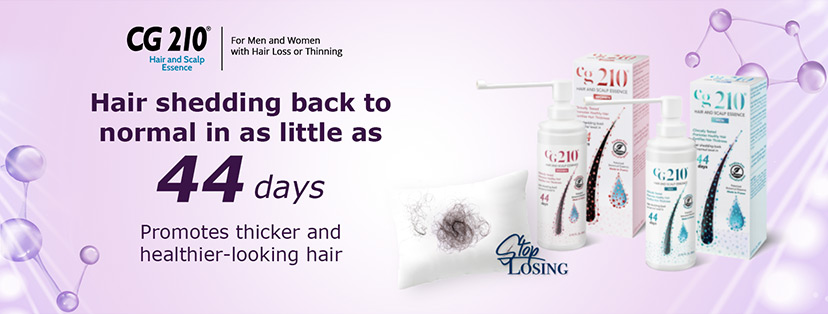COVID-19 Related Skin Problems

With the current pandemic, mask-wearing has become a necessity. However, the constant friction of the mask against your skin, coupled with trapped breaths and moisture underneath, can cause unanticipated skin problems. While working from home remains the default for most people, long hours of staying in air-conditioned rooms can cause the skin to become dry, itchy, and irritated too.
Let’s explore the importance of taking care of the largest organ of the human body - our skin, and how to prevent it.
Maskne
Acne mechanica, more commonly known as “Maskne”, is a skin condition brought on by prolonged wearing of face masks, resulting in acne breakouts around the mouth. Mask wearing imposes heat, friction and occlusion on the skin. When combined with a humid and moist environment from breathing, talking or sweating, it creates an optimal environment for breakouts. The pores on your face get clogged, resulting in pimples, or in some cases, acne cysts.
How do you prevent Maskne?
Disposable surgical masks or N95 masks are more hygienic, but they prone to trapping more moisture and might cause more acne breakouts. Cotton cloth masks are advised for people who are prone to maskne, but they have to prepare a few spare ones so that they can wash them after every use.
Dry Scalp
Apart from taking care of visible parts of our body, the parts left unseen are often neglected. Most of us pay no attention to scalp protection and forget that it is an extension of our face. The scalp is anatomically similar to the rest of our skin albeit with thicker density and oil glands - it has five layers of tissues while our skin has three.
The lack of care can lead to problems that require our serious attention: hair loss, irritation, itchiness and dryness. In order to prevent these potential problems, we need to create a healthy environment for our scalp and hair to flourish.
How do you prevent dry scalp?
- Use gentle, sulfate-free hair products
Sulfate removes healthy oils and dead skin cells which makes the scalp excessively dry and prone to irritation. - Shampoo gently
Instead of scrubbing, massage the scalp to increase circulation and reduce abrasion. - Wash less frequently
Shampooing too often strips the natural oils away, and our scalp might produce more oils to keep it hydrated, resulting in oily-looking hair. It is not recommended to wash your hair more than once a day.
Hair Loss
There have been increasing reports about stress-related hair loss during the COVID-19 pandemic. To put into perspective, here are three types of hair loss that can be associated with high stress levels:
- Telogen effluvium. In telogen effluvium (TEL-o-jun uh-FLOO-vee-um), significant stress pushes large numbers of hair follicles into a resting phase. Within a few months, affected hairs might fall out suddenly when simply combing or washing your hair.
- Trichotillomania. Trichotillomania (trik-o-til-o-MAY-nee-uh) is an irresistible urge to pull out hair from your scalp, eyebrows or other areas of your body. Hair pulling can be a way of dealing with negative or uncomfortable feelings, such as stress, tension, loneliness, boredom or frustration.
- Alopecia areata. A variety of factors are thought to cause alopecia areata (al-o-PEE-she-uh ar-e-A-tuh), possibly including severe stress. With alopecia areata, the body's immune system attacks the hair follicles — causing hair loss.
Stress and hair loss don't have to be permanent. And if you get your stress under control, your hair might grow back.
If you notice sudden or patchy hair loss or more than usual hair loss when combing or washing your hair, talk to your doctor. Sudden hair loss can signal an underlying medical condition that requires treatment. If needed, your doctor might also suggest treatment options for your hair loss.
How can Vitamin D deficiency lead to hair loss?
One of the important roles of vitamin D is stimulating new and old hair follicles. Getting adequate vitamin D intake or supplementation may help prevent hair loss.
This is because:
- Vitamin D may be important for cell proliferation in the hair growth cycle
- Vitamin D may reduce inflammation, which may also help keep hair follicles healthy
- Vitamin D helps support immune function which can protect the scalp from infection
In sunny Singapore, getting enough dose of vitamin D natural isn’t difficult. However, the 2010 National Health Survey found that 40 per cent of Singaporeans were deficient in vitamin D, while another 8 per cent were very deficient. Since COVID-19 started, many of us have significantly reduced outdoor activities, and increased our time spent at home for work or home based learning.
There are different ways to get your dose of vitamin D. Regular sun exposure is the most natural way to get enough vitamin D. It is mainly produced in the skin when it is exposed to the ultraviolet (UV) B rays of the sun. To get an adequate amount of vitamin D, it is recommended to get sun exposure on the arms and legs for about five to 30 minutes twice a week.
The best time to do so is between 10am and 3pm each day, in addition people with paler skin require less sun exposure than those with darker skin. If you are unable to leave home, stay by the window with sunlight shining through. Consume foods that are rich in vitamin D, such as oily fishes like salmon, tuna, mackerel; eggs. Vitamin D supplements like cod liver oil is also an option.
Skin Pigmentation
As we spend most of our time staying indoor, most of us would seize any opportunity to exercise outdoors when possible and to have a breath of fresh air. When exercising outdoors, the combination of extended sun exposure and improper care can lead to skin pigmentation and premature ageing of the skin. As the sun’s harmful ultraviolet (UV) rays damage our skin significantly over time, it is important to wear sunscreen every day, even at home or on cloudy days.
How do you prevent skin pigmentation?
- Choose a sunscreen with a minimum Sun Protection Factor (SPF) of at least 30 or higher.
- Make sure it is water resistant to withstand sweat.
- Apply at least half a teaspoon of sunscreen to your entire face.
- Apply at least 15 to 30 minutes before going outdoors.
During this pandemic, it is important to be extra mindful in protecting our general well-being. If you encounter any persisting skin problems, consult a dermatologist immediately before it worsens.
Article reviewed by Dr Michael Wong, Family Physician and Consultant, Raffles Medical























